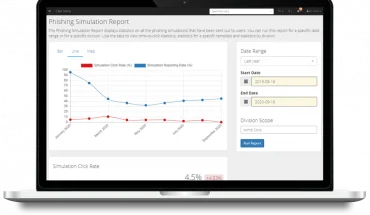OK, so most Canadians have survived the municipal elections.
Our friends to the south still have to get through their big election day tomorrow – then it’s democracy for us all!
Right?
Well…
The folks behind a week of events across Canada have some qualifiers to add, so they’re staging Media Literacy Week, leading to Media Democracy Day.
More than ever before, to be techno-savvy, media literate and truly democratic these days, you need to develop some of your own special filters – critical thinking habits, discriminating market awareness, and a range of communication and information management skills – including, but not limited to updating your Facebook page!
Especially for younger people, the many overt and subtle ways that media and technology can influence personal and social identities, meaningful relationships and lifelong values, is both a challenge and an opportunity.
And, like many elections, the real impact may come later.
Understanding the impact of media and technology – be it on an individual or on a culture – can be a matter of survival.
We all want to know what features a specific cell phone has, for example, just as we all should want to know what impact media and technology have on our economy, our society, ourselves.
From the specific to the general, these topics will be explored in several venues across Canada during this, the fifth anniversary of Media Literacy Week, going on from November 1 to 5.
Before and during the week, schools, community organizations, libraries, and parent- and youth-based groups across Canada will be participating in activities, such as panel discussions, youth forums, film festivals, animation workshops, student video contests, conference presentations and parent workshops.
It all leads to this coming November 6th, Media Democracy Day.
That’s when tech fans, media makers, innovators, educators, students and citizens all are invited to participate in discussions on the state of the Canadian and global tech and media scene. Several Canadian tech companies are supporting the initiatives.
Some activities are on line, some are in the ‘real world’, such as the free panel discussions, workshop sessions, keynote speakers, film screenings and an exhibition of local, alternative, non-commercial and public media and technology outlets, all part of a special one-day event in Vancouver among other locations, hosted by the School of Communication at Simon Fraser University, OpenMedia.ca, and the Vancouver Public Library.
Media Literacy Week is supported by YouTube as a Gold Sponsor and Bell as a Silver Sponsor for 2010.
Mnet, the Media Awareness Network, is a Canadian not-for-profit centre of expertise in media and digital literacy. MNet’s programs are funded by its public and private sector sponsors and partners, including: CTVglobemedia, Canwest, TELUS, Bell, Canadian Internet Registration Authority, and the National Film Board of Canada.
You can also check out the Association for Media Literacy; the AML is a voluntary, non-profit organization dedicated to promoting media education as a means of understanding the influence of the media, and the impact of rapidly evolving technology, on our culture.
submitted by Lee Rickwood





You just can’t make this stuff up…
What a great illustration of the importance of, and need for, more media literacy and techno-savviness in our times.
Reports about Rob Ford’s election team creating a fake Twitter account during the recent mayor’s election (tweets from a fake voter with fake opinions and seemingly even a fake pet) are just to good – and too bad – to ignore.
The account is closed now, but the tweets are available online, at The Torontoist.
One tenet of media literacy is that you read between the lines. That you determine the real source, the real motivation, the real agenda behind any kind of media content. We all can make content incredibly easily, so I think the onus is even greater to determine ‘why?’ was such and such content posted.
Some of us are just trying to share a few idea among friends, some are trying to make a few bucks.
Some seem to have much murkier motivations. It’s up to us, as the media literate, to know the difference.